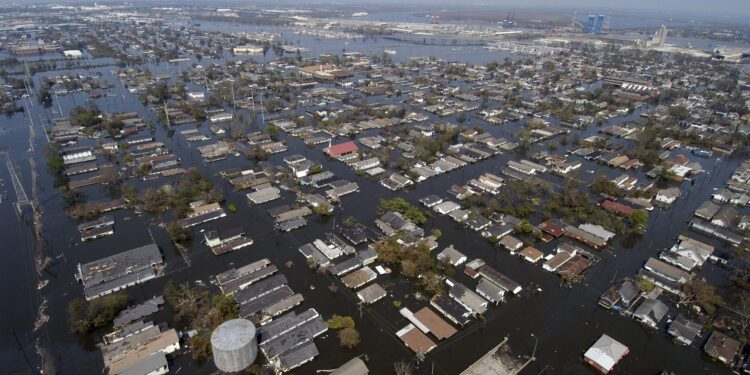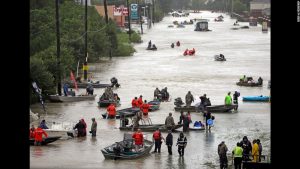Hurricane Harvey proved yet again words can make the difference between life and death.
By Pablo Hernández Lodigiani, senior reporter for Chief Executive Officer Latin America
At least 10,000 people have been rescued from the Houston area after Hurricane Harvey has made its way to Louisiana.
As the natural disaster made landfall on the Texas coast on Friday, officers were prepared to receive a Category 4 storm, however, expectations were exceeded and the National Weather Services warned by Sunday that “This event is unprecedented and all impacts are unknown.”
Since the weekend, at least 10 people have been killed and at least 450,000 have been driven to seek disaster assistance, as 48 inches of water drowned the southeast region of Downtown Houston, while other places suffered 40-to-more inches of depth.
The devastating strength of Hurricane Harvey has forced communicators, weather reporters and officers of the law to seek new superlatives, as words do not tie with the crisis lived all around Texas.
Governor of Texas Gregg Abbott called the storm as “one of the largest disasters America has ever faced”; as for weather broadcasters, the words used to describe Hurricane Harvey were “unknown” and “beyond anything experienced by the state”.
Although past natural dangers have threatened and raised the stakes across the U.S., Hurricane Harvey was expected to be something never-before seen, as overflows were expected to top what the city of Houston sees in a whole year.
But, did the message get through?
The power of words
In life and business, choosing words carefully and maintaining free of “content-stuffing” can make a world of difference.
Hurricane Bret in 1999 was the last major storm to hit and make landfall in Texas, so, the majority of teenagers in the region had not yet experienced the procedures and dangers of a Category 4 storm.
In situations where even weather forecasts are having a hard time finding the correct words, – adding up to a day and age where people are bombarded with words and information -, it may become a must to re-consider the state of emergency and the way reporters and public figures on the media handle their words so they can really get through and communicate the hazards people are facing.
Earlier this week, The New York Times published an interview with Elliott Jacks, head of a National Weather Service project, where he said:
“The idea is to create a standardized catalog of words that meteorologists can pull out to describe pre-defined weather conditions. For example, reserving the use of the word “catastrophic” for only some extremely violent storms, would make it more of a common call to action rather than a description of just one episode.”
The Hurricane will surely help elaborate a new plan of communication, as well as a new plan of action in car-dependent, diverse and low-lying cities like Houston.
It will take many months for the Texas regions to build up what Hurricane Harvey took in its path, but like any natural or uncontrollable disaster, we will build, learn, and start again.
Article inspired by the Christine Hauser work in The New York Times.














